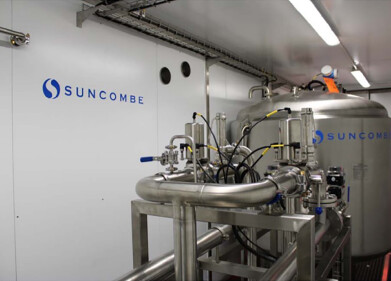Laboratory Products
Anton Paar’s RapidOxy 100: Optimising the quality and lifetime of environmentally acceptable lubricants
Oct 24 2024
Environmentally acceptable lubricants (EALs) have a reduced impact on the environment and contribute to improved environmental protection and sustainable development.
Bio-components may improve the eco-balance; however, some may have a negative effect on important characteristics of the lubricant and therefore need to be supervised. One of the drawbacks of EALs may include limited high-temperature performance due to inferior oxidation stability. As eco-friendly lubricants are expected to degrade in the presence of oxygen over time, their shelf-life may also be shorter compared to that of mineral oils. The serious effect of degradation by oxidation can compromise their properties as well as impair their quality and performance.
To assure and maintain product quality and safety during the lifetime of an EAL, Anton Paar provides a unique instrument solution – RapidOxy 100. It features accurate pressure monitoring and a unique measuring principle to artificially accelerate the oxidation process by using increased temperature and an excess of pure oxygen. It fully complies with ASTM D8206 and measurements are fully automatic after a set-up taking less than five minutes.
Demonstrating the effectiveness of the test, the table below shows the test results of a variety of EAL sample types of different producers, e.g. hydraulic oil, gear oil, chainsaw oil, universal oil, motor oil, concrete mould release oils, and high-performance oil:
| Product type | RO 100 140 °C 1. Test |
RO 100 140 °C 2. Test |
RO 100 160 °C 1. Test |
RO 100 160 °C 2. Test |
| Hydraulic oil | 389.93 min | 415.48 min | 114.20 min | 114.63 min |
| Mold oil | 41.23 min | 41.77 min | 16.55 min | 16.05 min |
| Universal tractor oil | 1015.5 min | 1015.58 min | 316.70 min | 324.38 min |
| Gear oil | 902.5 min | 883.72 min | 262.65 min | 258.28 min |
| Universal oil | 802.78 min | 798.63 min | 241.70 min | 239.68 min |
| Chainsaw oil | 128.72 min | 129.72 min | 39.80 min | 39.48 min |
| Chain saw oil | 27.17 min | 26.88 min | 19.25 min | 19.32 min |
| Hydraulic oil | 265.77 min | 265.63 min | 64.40 min | 64.70 min |
| Gear oil | 1666.13 min | 1616.08 min | 709.85 min | 745.78 min |
| Hydraulic oil | 366.77 min | 369.27 min | 86.32 min | 86.22 min |
The measurement results demonstrate that the oxidation stability of each lubricant clearly reflects its intended use and area of application. Chainsaw oil has low oxidation stability, as fast decomposition after use is a desired property. Gear oil, on the other hand, must have high oxidation stability. Some gear oils additionally contain organosulfur compounds, as well as pressure additives and oxidation and rust inhibitors, all of which lead to even higher oxidation stability. The high repeatability is one of the major benefits when it comes to measuring with RapidOxy 100.
Further investigation of the oxidative behaviour is possible with the powerful OxyLogger 100 desktop software: Automatic calculation of activation energy and oxygen consumption, estimation of shelf life, and many more useful features take product stability to a new level.
More information online
Digital Edition
International Labmate 49.6 - Sept 2024
September 2024
Chromatography Articles - HPLC gradient validation using non-invasive flowmeters Mass Spectrometry & Spectroscopy Articles - From R&D to QC, making NMR accessible for everyone: Putting NMR...
View all digital editions
Events
Oct 30 2024 Birmingham, UK
Oct 30 2024 Manchester, UK
Nov 11 2024 Dusseldorf, Germany
Nov 12 2024 Cologne, Germany
Nov 12 2024 Tel Aviv, Israel



















